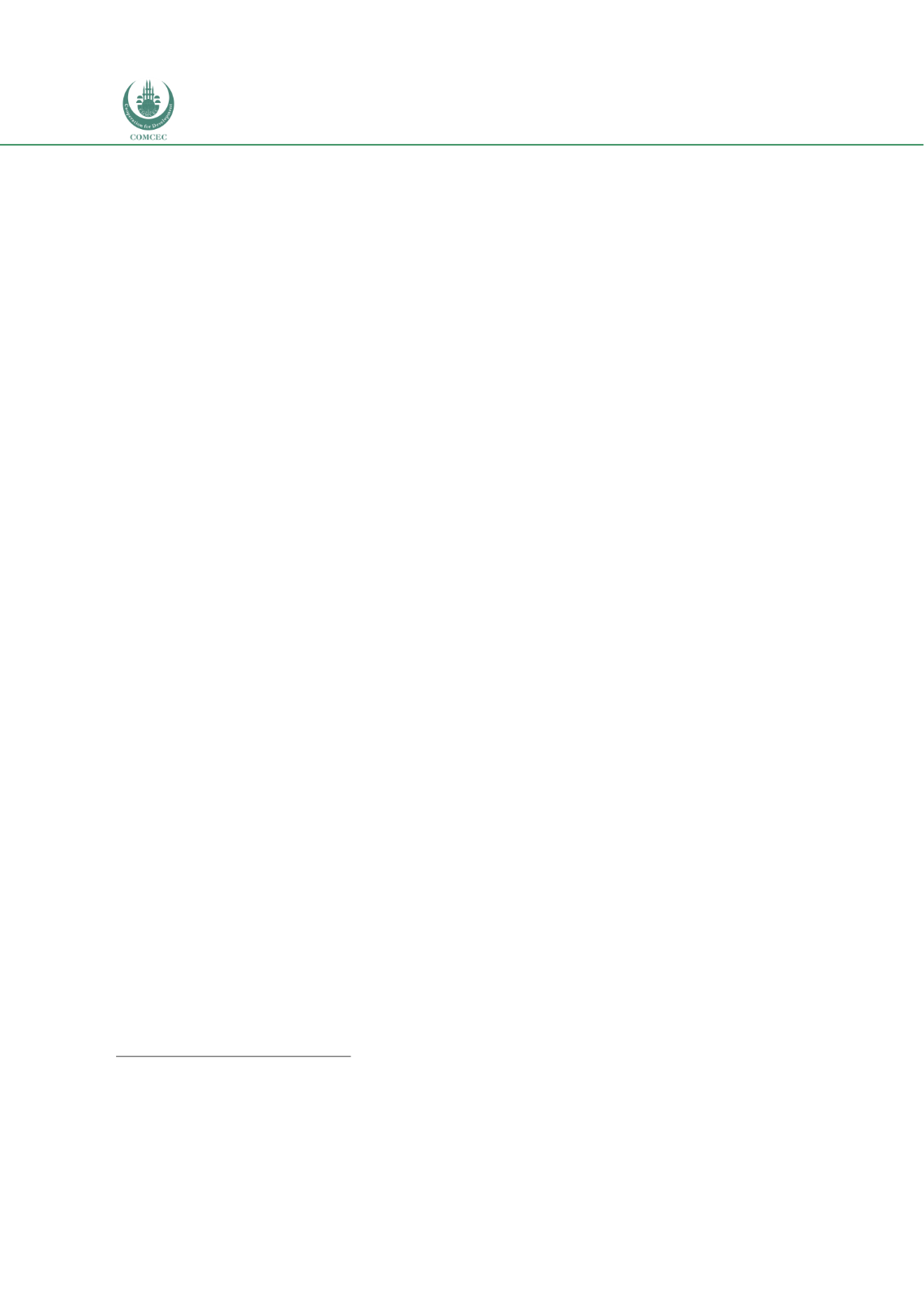

Infrastructure Financing through Islamic
Finance in the Islamic Countries
156
4.6.
United Kingdom
4.6.1.
UK Financial Sector and Islamic Finance: An Overview
The United Kingdom
(UK) has a developed financial sector and is recognized as one of the top
international financial centres in the world.
68
The banking sector valued at USD 8 trillion is the
largest in Europe, and the insurance sector is the fourth largest in the world and the largest in
Europe with premiums of USD 304 billion constituting 20.7% of the premiums in the
continent. The capital market is also one of the largest and most developed with 479 listed on
the London Stock Exchange (representing 16% of the global total). The value of international
bonds in the UK was USD 2.9 trillion and assets under management amounted to USD 11
trillion in 2016. The country was a net exporter of financial services worth USD 77 billion,
making it the highest followed by the US at USD 44 billion. The UK is the largest market for
foreign currency trade, with 37% of the global trading taking place in the country.
Furthermore, the country offers other alternative financial products and services including
hedge funds, private equity, derivatives trading, commodities trading, green finance, etc. Other
than providing financial products, the country also offers other related professional services
including legal services (TheCityUK 2017b).
Being an international financial centre, Islamic finance has been in the UK for almost 40 years.
The UK made a strategic decision to encourage the growth of Islamic finance in the country to
highlight the status of London as the key global financial centre for Islamic finance and also to
financially include the Muslims living in the UK by providing them with retail Islamic financial
services. Currently, the UK has the largest Islamic financial sector in the West, with the country
ranked 22
nd
globally (among 124 countries) in Islamic financial services offerings. With five
full-fledged Islamic banks and another 20 banks offering Shariah-compliant services, the value
of Islamic banking assets was worth USD 5 billion in 2016. Although the Muslim population of
2.7 million (5% of the population)
69
in the country is relatively small, being an international
financial centre the UK attracts a lot of Shariah-compliant funds from overseas both in
investment banks and capital markets.
The takaful sector has not been able to develop in the country. The British Islamic Insurance
Company (traded as Salaam takaful) was established in 2008 to provide casualty insurance but
closed after a year due to lack of business (Dunkley 2009). The Cobalt platform was launched
in the London market in 2013 to allow a number of insurance firms to offer capacity through
Takaful windows under a common management. With its capacity coming from insurers and
reinsurers based in several jurisdictions, including a Shari’ah compliant syndicate at Lloyd’s,
Cobalt’s business was directed towards large commercial businesses in the international
market (COMCEC 2016). More recently, InsureHalal, a fintech providing home insurance, was
launched in the country in 2017.
The Islamic capital market in the UK is relatively well–developed. The LSE launched the first
Islamic Finance Market Index in 2013, and Islamic funds managed in the UK are valued at USD
68
https://www.thecityuk.com/assets/2017/Reports-PDF/b6f1a3bf71/Key-facts-about-the-UK-as-an-International-financial-centre-2017.pdf
69
https://www.ons.gov.uk/peoplepopulationandcommunity/culturalidentity/religion/articles/fullstorywhatdoesthecensustellusaboutreligionin2011/2013-05-16
















